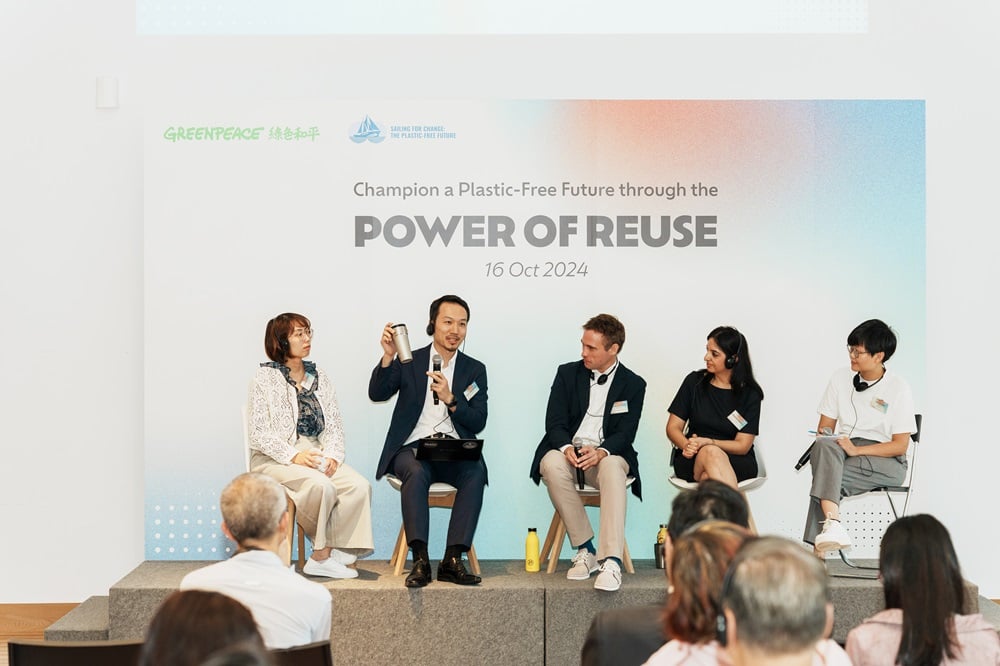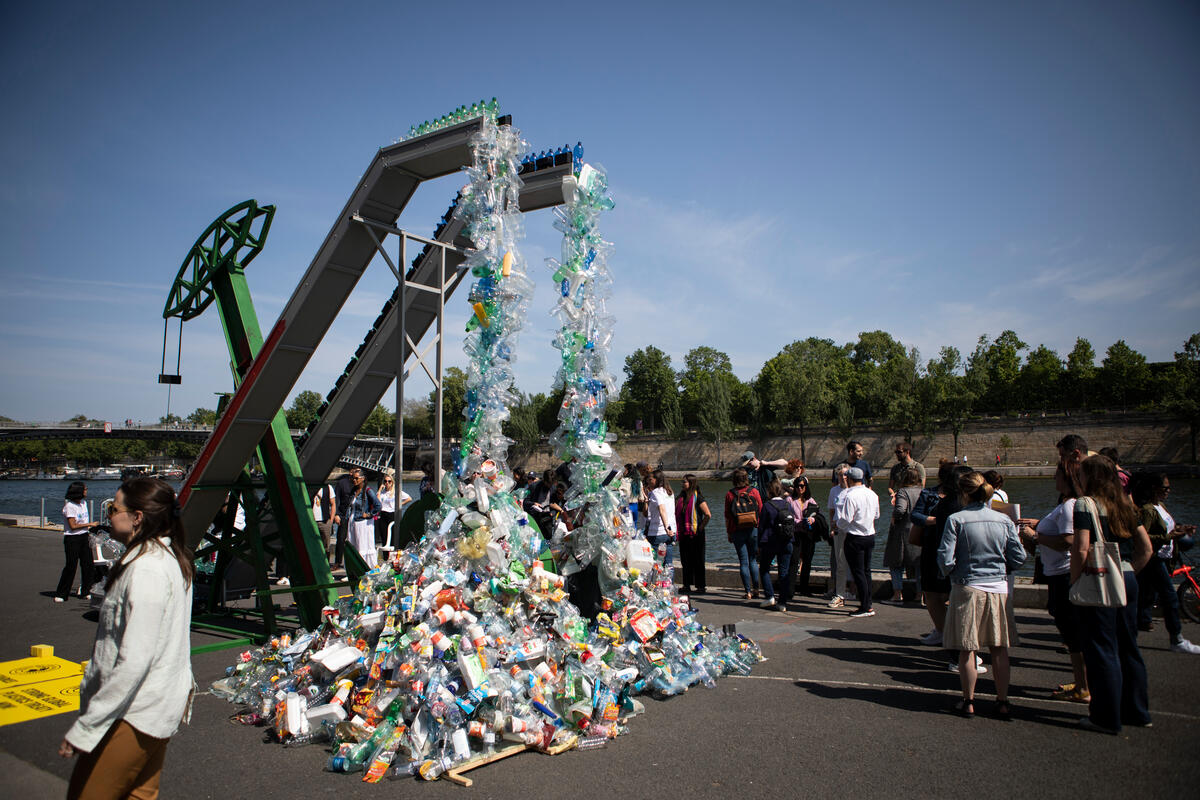Greenpeace’s Borrow and Return Cup Program has expanded to various districts of Hong Kong in partnership with 36 local coffee shops. It successfully demonstrates that a reusable system can be the solution to our plastic pollution crisis. Let’s hear 4 of our coffee shop partners’ thoughts about it too!
Download the mobile app #ch00ze, buy a drink with the reusable cup and enjoy your HK$5 equivalent discount for each purchase! (Click here for details of the Program)
Black Kirin Coffee Brewers: The Peng Chau Coffee Man’s green revolution
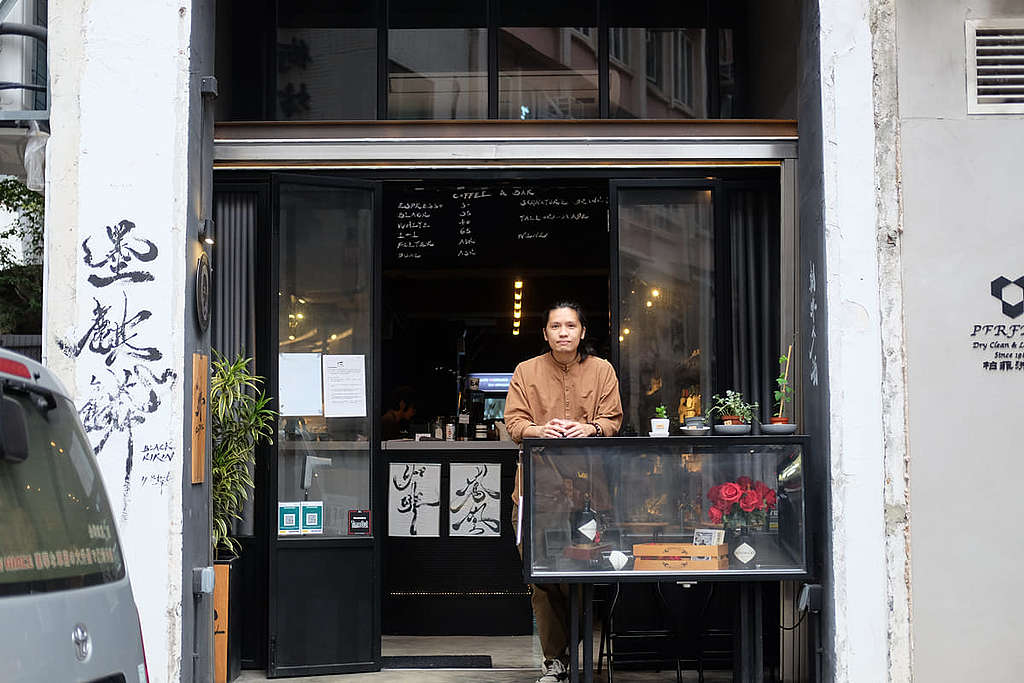
“Coffee is a means, the end is getting to know different people,” the shop owner, Yat recalled the dates he rode on bicycle brewing coffees for Peng Chau residents. Since then, he became a well-known “Coffee Man” on the island. He was driven to move out to Central, where he started Black Kirin Coffee Brewer, serving coffees at daytime and alcohols in the evenings.
“The closer you are to nature, the more you treasure it. I take a ferry ride back to my home on Peng Chau, slowing myself down, and begin to see more about the world.”
In the coffee retail industry, Yat supplies coffee beans to several Borrow and Return Cup Program participating shops. He came to know about the Program via industry practitioners. “I saw the promotion in Sheung Wan (the first phase of the Program) and realised my interest in it. Every cup, every lid, every drinking straw, every coffee bean wrap… every single dollar earned in the industry is consuming resources in the world. Greenpeace has established a reusable cup system in the district, I could see the impact would grow and thought why not have a try on it.”
CLEAN: Add $2 each for milk and disposable cups in a Sai Ying Pun shop
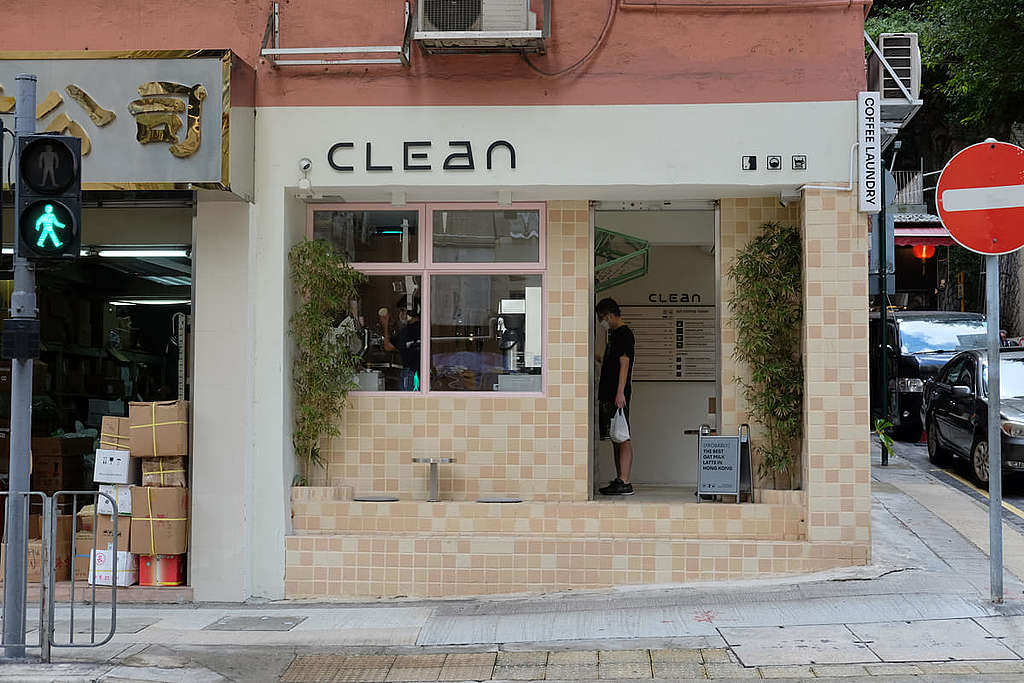
Extra cost at HK$2 each will apply if a customer wants to change oat milk coffee to milk or use disposable cups for takeaway orders. It can be interpreted as a hardcore environmental motive. Yet to the Sai Ying Pun coffee and laundry shop owner, Cynthia, the idea is not a fancy to change the world, but to reflect the cost of carbon footprint fairly on the marked price. The shop can then strike a conversation with customers to bring about any possible changes.
“Most of the time, it’s not that customers don’t want to be environmentally friendly, but they can’t understand how serious the issue can be. If we only reward customers who manage to bring their own cups, they would only bring the cups when they remember it, as it is a bonus. I hope bringing one’s own cup can become a standard practice.”
“From day one, we understand that a small shop cannot change the world. We want to start spreading the message among our customers in the community, and that would suffice.” She did not shy away from the fact that some customers could show their disgraceful look at her, but still she could see some positive signs of change. “Once, a customer ordered 3 takeaway drinks, summing up to HK$6 additional charge in total. We encouraged the customer to try the Borrow and Return Cup Program instead, and it turned out we lent out 3 returnable cups.”
Beyond Coffee & Bar: the arts and culture coffee shop that stays in Hong Kong
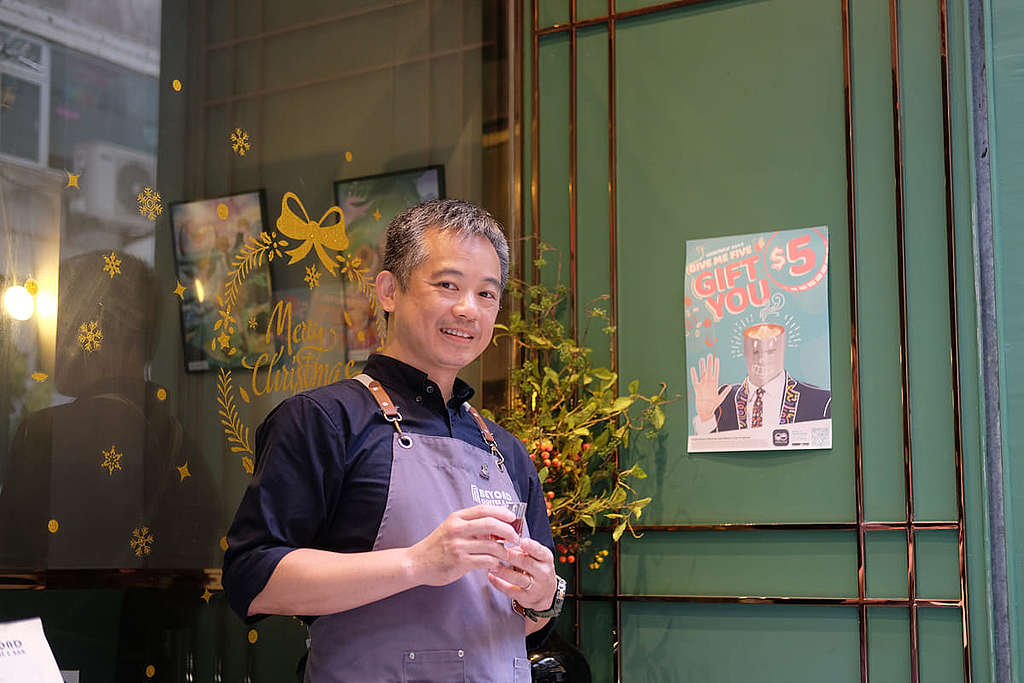
Beyond a big green door on Yiu Wa Street, Causeway Bay, a gallery and studio like coffee shop offers a welcoming space where customers can exchange views, share arts and culture. It is exactly what the shop owner, Johnson dreams of as an ideal coffee shop.
Reaching 50, he decided to embark on a new chapter of his career upon quitting the IT industry, against the waves of changes in the city. “Many decided to migrate away from the city these few years. I chose to spend my life staying here. By sharing what I like (coffee), I want to build up a platform to gather arts and culture, people with dreams, and in turn, give back Hong Kong our stream of positive energy.”
When asked what made him join the Program, Johnson recalled particularly how the Greenpeace community outreach team knocked on his door and invited him to enrol in it. He found the shared vision to expand the Borrow and Return Cup Program which started in Sheung Wan, and joined it with great pleasure. “I believe in the persistence to initiate changes, and pass on the message from one individual to another. I won’t be defeated by frustrations and I choose what I want to do!”
Coffee & Laundry: “Green and lifestyle, I want them all”
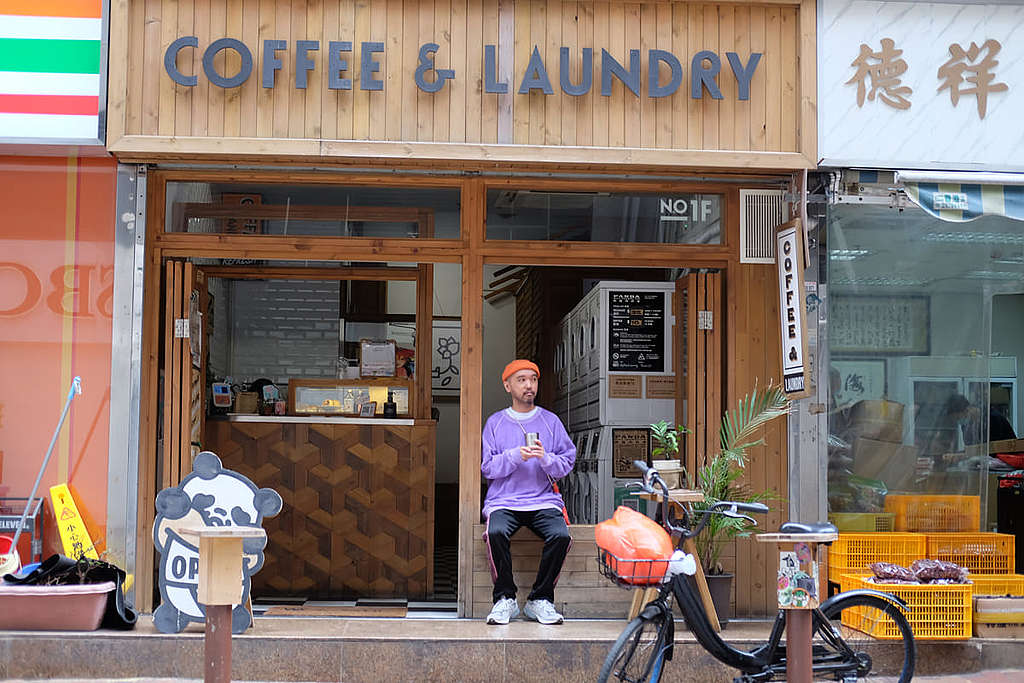
“I’m another Lam Chiu-ying (former Director of the Hong Kong Observatory and a legendary green leader who is famous for not having air-con at home), haven’t had my home air-conditioner on for more than 3 days this year,” said Katol, a stylish designer and shop owner of Coffee & Laundry. He demonstrates how he leads a life with perfect harmony of the chic and green initiatives. He initiated the shop’s own cup rental service from 2019, though there were about 50 cups lost in half a year since its launch.
Lately, he has joined Greenpeace’s Borrow and Return Cup Program, seeing the system is much well established now. Positive responses from the customers have been very encouraging. The day Greenpeace conducted an interview at the shop, the barista, Harbie passionately introduced the Program, and it motivated two customers to borrow returnable cups for their orders.
“(I’m) not supporting (environmental protection), but feel it’s just the right thing to do. I’m not trying to protect the Earth, but not to harm it.” Katol does not position his initiative as “environmental protection”, but upholds an attitude of “should-do” and “do-our-best”.
“What matters most is you’ve made the first step and acted on it. If you care about the outcomes too much, nobody will do it.” This tells how Katol keeps his spirits up engaging in the plastic-free initiatives.

-1.jpg)
